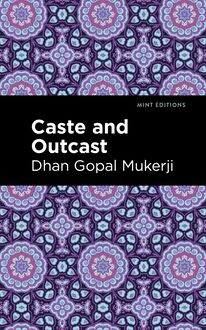-
 Univers
Univers
-
 Ebooks
Ebooks
-
 Livres audio
Livres audio
-
 Presse
Presse
-
 Podcasts
Podcasts
-
 BD
BD
-
 Documents
Documents
-
- Cours
- Révisions
- Ressources pédagogiques
- Sciences de l’éducation
- Manuels scolaires
- Langues
- Travaux de classe
- Annales de BEP
- Etudes supérieures
- Maternelle et primaire
- Fiches de lecture
- Orientation scolaire
- Méthodologie
- Corrigés de devoir
- Annales d’examens et concours
- Annales du bac
- Annales du brevet
- Rapports de stage
La lecture à portée de main
Vous pourrez modifier la taille du texte de cet ouvrage
Découvre YouScribe en t'inscrivant gratuitement
Je m'inscrisDécouvre YouScribe en t'inscrivant gratuitement
Je m'inscrisEn savoir plus
Vous pourrez modifier la taille du texte de cet ouvrage
En savoir plus

Description
Sanshirō (1908) is a novel by Natsume Sōseki. Inspired by the author’s experience as a student from the countryside who moved to Tokyo, Sanshirō is a story of family, growth, and identity that captures the isolation and humor of adjusting to life on one’s own. Recognized as a powerful story by generations of readers, Sanshirō is a classic novel from one of Japan’s most successful twentieth century writers.
Raised on the island of Kyushu, Sanshirō Ogawa excels in high school and earns the chance to continue his studies at the University of Tokyo. On his way there, he naively accepts an invitation to share a room with a young woman in Nagoya, realizing only too late that she has other things than sleep in mind. As he adjusts to life in the big city, he finds himself stumbling into more uncomfortable situations with women, radical political figures, and interfering colleagues, all of which shape his sense of identity while teaching him the value of trust, courage, and self-respect. While he misses his family and friends in Kyushu, Sanshirō learns to value his newfound independence, forming friendships that will last a lifetime. Sanshirō proves a gifted student but struggles to understand the intricacies of academic life. As he begins a relationship with the lovely Mineko, he begins to doubt his ability to defy tradition. Will he return home to raise a family in Kyushu, or remain in Tokyo to chart a path of his own? Eminently human, Sanshirō is a beloved story of isolation, morality, and conflict from a master of Japanese fiction.
With a beautifully designed cover and professionally typeset manuscript, this edition of Natsume Sōseki’s Sanshirō is a classic work of Japanese literature reimagined for modern readers.
Sujets
Informations
| Publié par | Mint Editions |
| Date de parution | 19 avril 2021 |
| Nombre de lectures | 0 |
| EAN13 | 9781513288321 |
| Langue | English |
| Poids de l'ouvrage | 2 Mo |
Informations légales : prix de location à la page 0,0500€. Cette information est donnée uniquement à titre indicatif conformément à la législation en vigueur.
Extrait
Sanshirō
Natsume Sōseki
Sanshirō was first published in 1908.
This edition published by Mint Editions 2021.
ISBN 9781513283302 | E-ISBN 9781513288321
Published by Mint Editions®
minteditionbooks.com
Publishing Director: Jennifer Newens
Design & Production: Rachel Lopez Metzger
Project Manager: Micaela Clark
Typesetting: Westchester Publishing Services
C ONTENTS C HAPTER 1 C HAPTER 2 C HAPTER 3 C HAPTER 4 C HAPTER 5 C HAPTER 6 C HAPTER 7 C HAPTER 8 C HAPTER 9 C HAPTER 10 C HAPTER 11 C HAPTER 12 C HAPTER 13
Chapter 1
W hen he awoke, he saw that the woman had struck up a conversation with the old man seated next to her. This old man was a country fellow who had boarded several stations back. He’d come running on with a wild shout as the train was about to pull away. On board, he’d immediately loosened his kimono top to wipe off his sweat. Sanshir ō remembered the moxibustion marks on his back. He’d watched attentively as the old man put his kimono back in place and then took a seat next to the woman.
Sanshir ō and the woman had been riding together since Ky ō to. Her dark complexion had caught his eye as soon as she boarded. Once he’d left Ky ū sh ū and transferred to the Sany ō line, he’d noticed the women grow fairer in color as he approached the Ky ō to- Ō saka region. It drove home the feeling that he had really left home, and he felt a tinge of sadness. The woman’s presence in the car was comforting, as though he’d found a compatriot of the opposite sex. Her skin tone was unmistakably southern.
She reminded him of Omitsu Miwata. Omitsu was a pesky girl, and he’d been quite happy to leave her behind. But he felt now, after leaving, that maybe she wasn’t so bad after all.
In terms of appearance, this woman on the train was far superior, from the tightness of her mouth to the keenness in her eyes. And her forehead was not unduly wide like Omitsu’s. All in all she had a pleasant air about her. Every five minutes or so he’d raise his eyes and glance in her direction. Occasionally their glances would meet. When the old man had sat down next to her, he’d taken the opportunity to study her appearance. She’d smiled as she invited the old man to share her bench. Shortly thereafter, Sanshir ō had grown drowsy and dozed off.
It seemed that while he’d been sleeping, the woman and the old man had struck up an acquaintance. He listened in silence to their conversation. The woman was telling the old man her story.
Compared to Hiroshima, Ky ō to had better children’s toys at better prices. After attending to some business in Ky ō to, she’d bought toys by the Tako Yakushi temple. She was returning to her home town after a long absence, and was looking forward to seeing her children, who were staying there. On the other hand, she was returning to live with her parents under some duress, as remittances from her husband had stopped arriving. He had worked for a long time as a mechanic in the Kure Naval Arsenal. During the war he’d gone to work in Ryojun, and he’d returned home after the war’s conclusion. A short while later, he’d decided he could earn more abroad and had headed back to Dairen. Things went well at first, with regular letters and monthly remittances. Then, about six months ago, all communication ceased. He wasn’t the type to be unfaithful, so she hoped for the best, but she couldn’t subsist indefinitely without an income. She was returning to her parents’ home to await further news of his status.
The old man hadn’t heard of the Tako Yakushi temple, and he seemed to have little interest in children’s toys. He merely nodded politely through the first part of her story. However, when she mentioned Ryojun he suddenly took notice and told her sympathetically that he was very sorry for her situation. His own child had been drafted as a soldier and had died fighting abroad. He couldn’t understand the meaning of the war.
It would be one thing if victory had made life easier, but he’d lost a precious child, and life had only become harder. The whole thing was a fool’s errand. When times were good, men didn’t need to leave their families to earn a living. It was all on account of the war. At any rate, she must keep her faith. Her husband was surely alive and well. If she just persevered a little longer, he would certainly return. The old man thus sought to reassure her. The train stopped, and he told her to take care. He disembarked with vigor and went on his way.
Four others followed the old man off the train, and only one boarded in their place. The compartment, which hadn’t been very full to begin with, suddenly seemed deserted. A station attendant could be heard walking the roof to drop in lighted lamps from above. As if remembering to do something, Sanshir ō started in on the bent ō box he’d bought at the last station.
Several minutes after the train had started again on its way, the woman quietly rose and passed by Sanshir ō on her way out of the car. He caught sight of her kimono sash for the first time. Chewing on the head of a stewed ayu, he watched her from behind as she walked away. Thinking she probably went off to the restroom, he continued his meal.
The woman came back after a while, and this time Sanshir ō watched her from the front. He was almost through eating. Looking down, he thrust his chopsticks in with vigor and stuffed his cheeks with two or three mouthfuls. The woman hadn’t returned to her seat. Sensing a presence, he raised his eyes and saw she had stopped directly in front of him. As soon as he looked up at her she moved, but rather than passing by and returning to her own seat, she dropped onto the seat in front of his. She turned sideways, put her face to the open window, and gazed silently out. Sanshir ō could see her side locks dancing in the wind. Finishing his bent ō , he hurled the empty box out the open window behind him. Only one window separated his own from the woman’s. When he saw the white lid fluttering back with the wind, he realized he’d been terribly careless. He turned quickly to look at the woman’s face, which unfortunately was still at the window. She withdrew from the window silently and began to gently wipe her forehead with a printed cotton handkerchief. Sanshir ō decided he had best apologize.
“I’m terribly sorry,” he told her.
“Don’t worry,” she replied, and continued with her handkerchief. Sanshir ō was at a loss and kept silent. The woman remained silent too. Then she returned to looking out the window. The weary faces of three or four other passengers were visible under the dim lamps. No one spoke. Only the roar of the engine sounded as the train continued on. Sanshir ō closed his eyes.
After a while he heard the woman’s voice ask, “Are we close to Nagoya?” Looking up, he was surprised to see that she had turned around and was leaning over with her face close to his own.
“I expect so,” he replied. It was his first time traveling to T ō ky ō , so in truth he had no idea.
“Do you think we’ll arrive late?”
“Probably.”
“You’re getting off in Nagoya too?”
“Yes.”
Their train was only going as far as Nagoya. There was nothing at all remarkable about their conversation. Except that the woman then sat down diagonally opposite to Sanshir ō . They continued on for a while with only the sounds of the train.
When they were stopped at the next station, the woman addressed Sanshir ō again. She didn’t want to inconvenience him, but she wondered if he would escort her to an inn when they arrived in Nagoya. She asked in earnest, adding that she was uneasy about going alone. Sanshir ō felt her request was reasonable, but he found himself reluctant to accept. She was a complete stranger, so he hesitated considerably. However, he didn’t have the courage to refuse her decisively, so he indulged her with noncommittal answers. Presently, the train arrived in Nagoya.
His large baggage had been checked through to Shinbashi, so he didn’t need to tend to it here. He picked up his canvas hand bag and his umbrella and exited through the ticket gate. On his head was the summer hat from his high school, but to signify his graduation he’d torn off the school insignia. In the daylight, the color where the patch had been looked newer. The woman followed behind him. He was a little embarrassed now about the hat, but there was nothing he could do. To her, it must look like any other worn out old hat.
The train had arrived after ten, about forty minutes past its scheduled time of nine thirty. However, since it was the hot weather season, the streets were still bustling like early evening. They saw several inns directly in front of them, but to Sanshir ō these looked rather expensive. He passed by the row of three-story buildings with electric lighting and strolled on. He was on unfamiliar turf and had no idea what he’d find, but he moved on toward darker quarters. The woman followed silently behind. On a relatively deserted side street, the second building from the corner had a sign advertising “Onyado Inn.” The modest sign seemed befitting to both Sanshir ō and the woman. He turned to consult with her, and she said it looked fine, so it was settled and he walked in. He’d intended to explain on entering that they were not a couple, but they were barraged with a rapid string of greetings. “Welcome! Come in. Show them to a room! Ume (plum) number four.” Overwhelmed, the two of them said nothing as they were whisked off to their room.
They sat staring blankly at each other until the maid arrived with tea. When she brought the tea in and announced that the bath was ready, he couldn’t muster the courage to tell her that the woman wasn’t his wife. He excused himself, picked up his wash towel, and headed for the bathing room. It was at the en
-
 Univers
Univers
-
 Ebooks
Ebooks
-
 Livres audio
Livres audio
-
 Presse
Presse
-
 Podcasts
Podcasts
-
 BD
BD
-
 Documents
Documents
-
Jeunesse
-
Littérature
-
Ressources professionnelles
-
Santé et bien-être
-
Savoirs
-
Education
-
Loisirs et hobbies
-
Art, musique et cinéma
-
Actualité et débat de société
-
Jeunesse
-
Littérature
-
Ressources professionnelles
-
Santé et bien-être
-
Savoirs
-
Education
-
Loisirs et hobbies
-
Art, musique et cinéma
-
Actualité et débat de société
-
Actualités
-
Lifestyle
-
Presse jeunesse
-
Presse professionnelle
-
Pratique
-
Presse sportive
-
Presse internationale
-
Culture & Médias
-
Action et Aventures
-
Science-fiction et Fantasy
-
Société
-
Jeunesse
-
Littérature
-
Ressources professionnelles
-
Santé et bien-être
-
Savoirs
-
Education
-
Loisirs et hobbies
-
Art, musique et cinéma
-
Actualité et débat de société
- Cours
- Révisions
- Ressources pédagogiques
- Sciences de l’éducation
- Manuels scolaires
- Langues
- Travaux de classe
- Annales de BEP
- Etudes supérieures
- Maternelle et primaire
- Fiches de lecture
- Orientation scolaire
- Méthodologie
- Corrigés de devoir
- Annales d’examens et concours
- Annales du bac
- Annales du brevet
- Rapports de stage


















